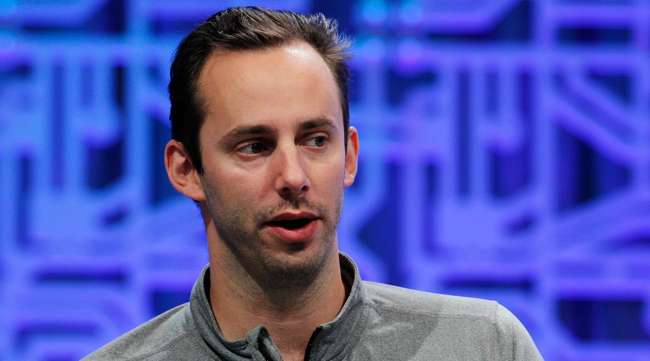Uber Denies It Knew About Copied Data in Waymo Secrets Suit

Uber Technologies Inc. said it didn’t know about the alleged theft of proprietary information from Alphabet Inc.’s autonomous driving unit by an executive until Waymo filed a lawsuit in February.
The ride-hailing company is seeking to refute Waymo’s claim that Uber conspired with Anthony Levandowski to download 14,000 files and steal trade secrets before he left Waymo in January 2016.
“Prior to the filing of this lawsuit, no one at Uber knew that Levandowski had downloaded any Google proprietary information for any improper purpose or that he had deliberately taken any Google proprietary information with him when he left Google,” according to Uber’s filing June 28 in San Francisco federal court.
Waymo alleges that in 2015, Levandowski and Uber Technologies Inc. hatched a plan for him to steal thousands of proprietary files, including the designs for lidar technology that help driverless cars see their surroundings. Uber, which acquired Levandowski’s startup, Otto, in August for $680 million, has denied Waymo’s allegations.
Uber told U.S. District Judge William Alsup in the June 28 filing that it searched its own servers in vain for Waymo’s files and noted that it has allowed Waymo to conduct 55 hours of inspections of its computers, facilities and emails. Alsup said in a May 11 ruling that Waymo made a “compelling” showing that Levandowski absconded with its files and that Uber “knew or should have known” the engineer took the information when it brought him aboard.
Waymo, in its own filing, stood by its claim of collusion between Uber and Levandowski.
“While discovery is not complete, the evidence to date indicates that Uber and Anthony Levandowski were in league with one another to port Waymo’s trade secrets to Uber going as far back as May 2015,” the company said. “Rather than do the right thing, Uber took part in a coverup, only firing Mr Levandowski after their actions were exposed in litigation,” Waymo said later in a statement.
The June 28 filings address the judge’s order that the companies summarize evidence they intend to present to a jury when the case goes to a trial set for October. The dueling narratives reveal sharp disagreement over the significance of a March 2016 conversation when Levandowski told Uber’s then-Chief Executive Officer Travis Kalanick that he possessed some discs containing Google information.
Waymo says it’s proof that Uber knew — almost a year before the trade-secrets suit was filed — that the engineer had downloaded proprietary information.
But Uber depicts the event much more innocently. It says Levandowski found the five discs in his home, from the time he worked at Google, and later that same day, on March 11, 2016, reported to Uber that he destroyed them. Levandowski didn’t say or suggest to Kalanick that he downloaded the information “for any improper purpose or that he had deliberately taken any Google proprietary information,” according to the filing.
Uber also revealed how it plans to rebut Waymo’s claim that the ride-hailing company structured Levandowski’s pay, including a $250 million stock award dated the day after he left Waymo, to incentivize the engineer to use the stolen trade secrets.
“Uber believes that the downloading of files by Levandowski had nothing to do with Levandowski’s future employment at Uber,” Uber said in its filing. “Rather, Uber believes that the downloading was done in relation to Levandowski’s employment at Google, specifically to ensure the expected payment of Levandowski’s $120 million bonus from Google.”
By Uber’s account, Google didn’t pay the engineer his first $50 million installment until two months after it was due in October 2015, and didn’t pay him the other $70 million until August 2016 — about half a year after he left Waymo.
Waymo, in its filing, traces email communication between Kalanick and Levandowski to show that they began meeting one-on-one as early as May 2015. One such meeting, on Jan. 4, 2016, started in the evening and lasted well past midnight. That same day, Levandowski downloaded “confidential Waymo materials to a personal device,” according to Waymo’s filing.
Waymo also said it has seen text messages from Levandowski to Kalanick, but that texts from the former CEO to the engineer appear to have been deleted.
Kalanick stepped down as Uber’s CEO under pressure from venture capital investors who hand-delivered a two-page letter that, according to people familiar with it, blamed Kalanick for putting the company at legal risk in the Waymo suit.
Levandowski was fired last month. In its letter terminating the engineer for cause, Uber cited his failure to fulfill an agreement to return or destroy “all property and confidential information belonging to any prior employer.”



